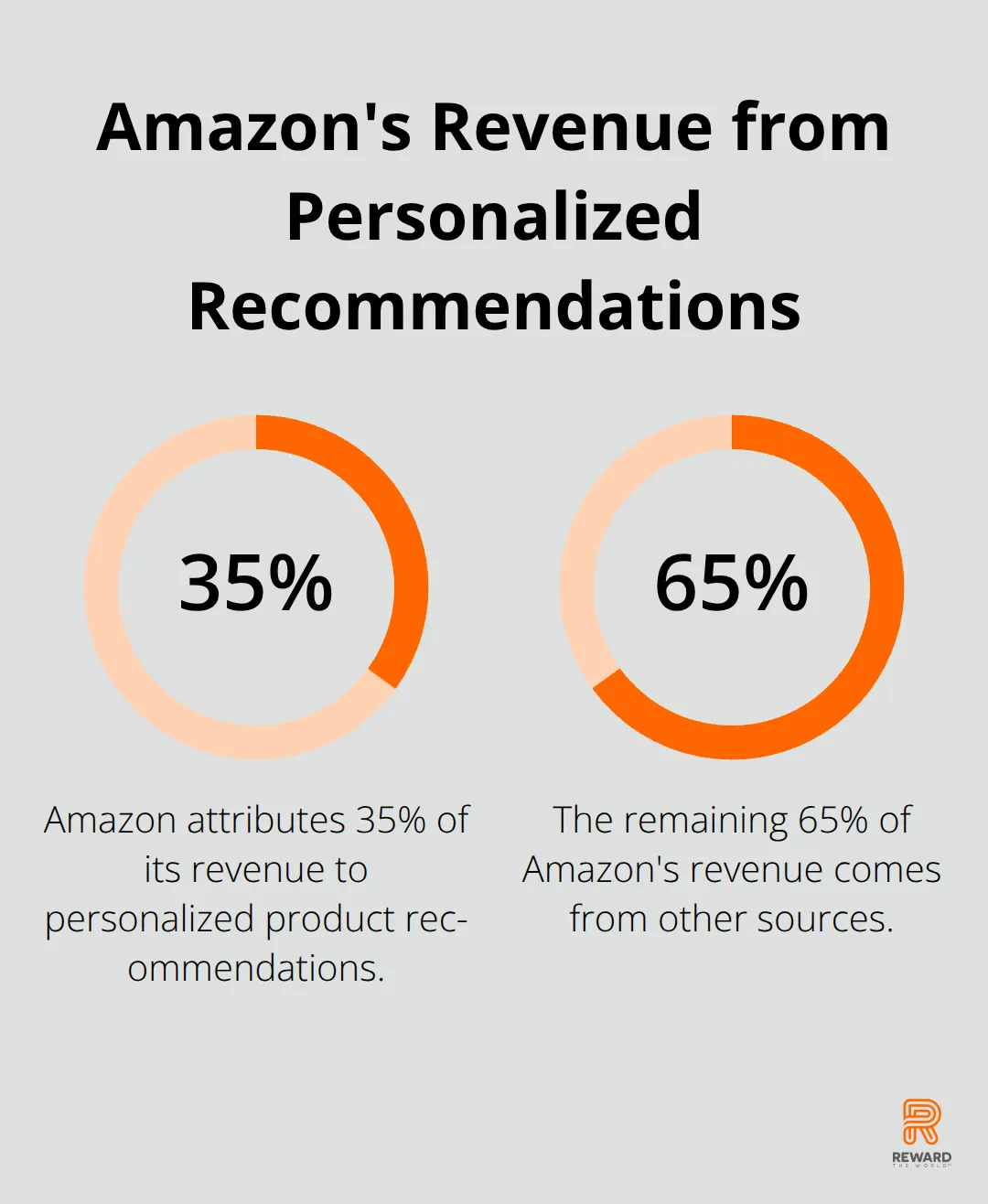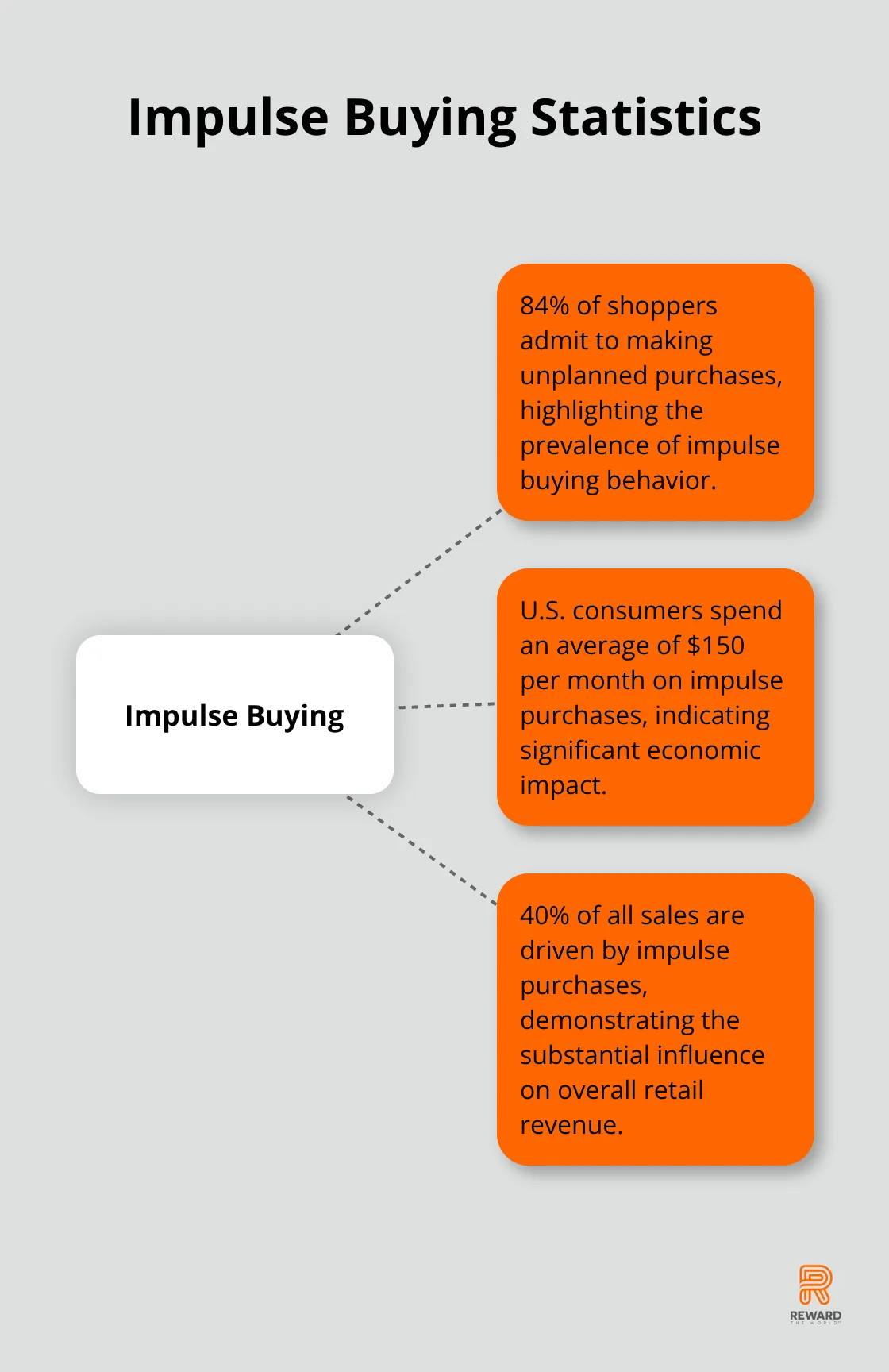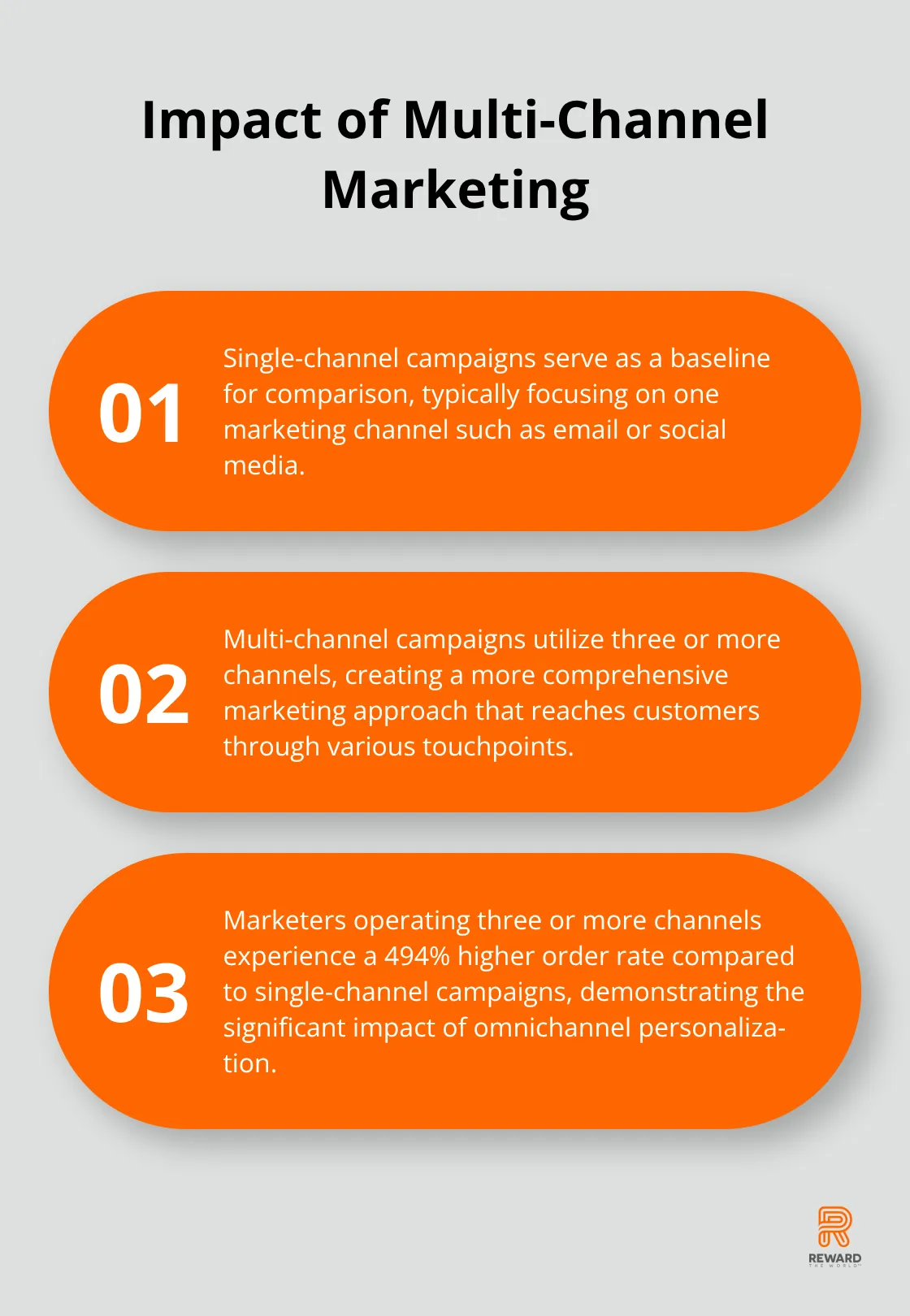
At Reward the World, we’ve seen firsthand how personalization at scale can transform customer relationships.
In today’s digital landscape, delivering tailored experiences to millions of customers is no longer a luxury-it’s a necessity.
This blog post will explore the strategies and technologies that make personalization at scale possible, and how businesses can implement them effectively.
Why Personalization Matters
Personalization isn’t just a buzzword; it’s a game-changer in customer experience. Let’s explore the concrete benefits of personalization and why it’s become indispensable in today’s market.
Boosting Customer Satisfaction and Retention
Personalization directly impacts customer satisfaction and loyalty. CPG data provides valuable insights into consumer behavior, preferences, and market trends, enabling marketers to make informed decisions. This translates to tangible business results. For instance, Amazon attributes 35% of its revenue to its personalized product recommendations.

To achieve similar results, try to:
- Tailor product suggestions based on browsing history
- Customize email content to reflect individual preferences
- Offer personalized discounts on frequently purchased items
Driving Conversion Rates and Revenue
Personalization significantly impacts your bottom line. Monetate reports that personalized homepage promotions influenced 85% of consumers to buy. Moreover, personalized email campaigns generate a 122% higher return on investment compared to non-personalized ones.
To boost your conversion rates:
- Implement dynamic pricing based on user behavior
- Use retargeting ads with personalized content
- Create landing pages that adapt to visitor characteristics
Gaining a Competitive Edge
In a crowded marketplace, personalization can set you apart. Gartner predicts that by 2026, companies providing a personalized experience will outperform competitors by 25% in sales. This advantage is crucial in industries with fierce competition.
To stay ahead:
- Invest in AI-driven personalization tools
- Continuously analyze customer data to refine your approach
- Train your team to leverage personalization insights effectively
Practical Implementation Tips
While the benefits are clear, implementing personalization at scale can present challenges. Start by:
- Collecting quality data: Use surveys, purchase history, and behavioral analytics to build comprehensive customer profiles.
- Segmenting your audience: Create micro-segments based on specific behaviors or preferences.
- Testing and iterating: Use A/B testing to refine your personalization strategies continuously.
Personalization is an ongoing process. Review your strategies regularly and adapt to changing customer expectations. With the right approach, you can deliver 1-1 experiences that resonate with millions, driving satisfaction, loyalty, and revenue growth.
Now that we understand the importance of personalization, let’s explore how to leverage data and technology to create these 1-1 experiences at scale.
How Data and Technology Power 1-1 Experiences
At Reward the World, we understand the transformative power of data and technology in personalization efforts. This chapter explores the key components that enable 1-1 experiences at scale.
The Foundation: Customer Data
Effective personalization starts with robust data collection and analysis. Identify the most valuable data points for your business, such as purchase history, browsing behavior, demographic information, and customer service interactions.
A study reveals that 84% of shoppers admit to unplanned purchases, with impulse buying statistics showing $150 monthly spend per U.S. consumer and 40% of sales driven by impulse purchases. To capitalize on this trend, implement these data collection strategies:
- Use website tracking tools to capture user behavior
- Integrate point-of-sale systems with your customer database
- Conduct regular surveys to gather direct customer feedback
- Analyze social media interactions for sentiment and preferences

AI and Machine Learning: Personalization Powerhouses
AI and ML are transforming retail personalization from a static, limited approach into a dynamic, data-driven process that adapts to individual customers’ needs. These technologies are essential for scaling personalization efforts.
To harness this potential:
- Implement predictive analytics to anticipate customer needs
- Use natural language processing to analyze customer feedback
- Develop recommendation engines based on collaborative filtering
- Employ dynamic pricing algorithms to optimize offers
CRM Systems: The Nerve Center of Personalization
CRM systems consolidate customer data from various touchpoints, providing a 360-degree view of each individual. They serve as the nerve centers of personalization efforts.
To maximize your CRM’s potential:
- Provide all customer-facing teams with access to the CRM
- Integrate your CRM with marketing automation tools
- Use CRM data to segment customers for targeted campaigns
- Set up automated triggers for personalized follow-ups
The success of personalization depends on the seamless integration of these technologies. A combination of robust data collection, AI-driven insights, and a well-utilized CRM system creates truly personalized experiences that resonate with millions of customers individually.
Now that we’ve explored the technological foundations of personalization, let’s examine the strategies for scaling these 1-1 experiences to reach millions of customers effectively.
How to Scale 1-1 Experiences
Hyper-Segmentation: The Foundation of Mass Personalization
We at Reward the World understand the power of hyper-segmentation in delivering personalized experiences. Today’s market demands more than broad customer segments. 81% of consumers say they will reassess their budget over the next 12 months as they seek more personalized experiences. To achieve this level of personalization:
- Use AI-powered clustering algorithms to identify micro-segments based on behavior patterns.
- Create detailed buyer personas for each micro-segment (including psychographic data).
- Develop tailored content and offers for each persona.
Instead of targeting all millennials, focus on eco-conscious millennial pet owners in urban areas who prefer organic products.
Dynamic Content: Real-Time Tailoring
Dynamic content adapts to individual users instantly. Netflix attributes 80% of its viewed content to its recommendation system (showcasing the power of dynamic personalization). To implement this:
- Use machine learning algorithms to predict user preferences based on past behavior.
- Implement real-time content management systems that swap out elements instantly.
- A/B test different content variations to optimize performance continuously.
An e-commerce site could dynamically change its homepage layout, featured products, and even pricing based on each visitor’s browsing history and purchase patterns.
Omnichannel Personalization: Consistency Across Touchpoints
Customers expect a seamless experience across all channels. Marketers operating three or more channels have a 494% higher order rate than single-channel campaign. To achieve this:
- Integrate all customer data sources into a centralized platform.
- Use cross-channel attribution models to understand the customer journey.
- Implement consistent personalization rules across email, web, mobile, and in-store experiences.
A practical example: When a customer abandons their cart on your website, send a personalized email reminder, followed by a push notification on your mobile app with a time-limited discount.

Personalization at Scale: The Role of AI and Machine Learning
AI and machine learning play a pivotal role in scaling personalization efforts. These technologies enable businesses to process vast amounts of data and make real-time decisions. To leverage AI and ML effectively:
- Implement predictive analytics to anticipate customer needs.
- Use natural language processing to analyze customer feedback.
- Develop recommendation engines based on collaborative filtering.
- Employ dynamic pricing algorithms to optimize offers.
Measuring and Optimizing Personalization Efforts
To ensure the success of your personalization strategies, you must measure and optimize continuously. Key metrics to track include:
- Conversion rates for personalized vs. non-personalized experiences
- Customer lifetime value (CLV) changes
- Engagement rates across different channels
- Return on investment (ROI) for personalization initiatives
Try to set up a robust analytics framework that allows you to track these metrics in real-time and make data-driven decisions to refine your personalization strategies.
Final Thoughts
Personalization at scale transforms customer engagement strategies. It boosts satisfaction, drives conversions, and provides a competitive edge. Businesses must leverage data, AI, and machine learning to create hyper-targeted experiences that resonate with individual customers on a massive scale.
Effective implementation requires comprehensive data analysis, AI-driven insights, and robust CRM systems. Companies should focus on hyper-segmentation, dynamic content delivery, and omnichannel consistency to tailor experiences in real-time. These strategies ensure relevance at every interaction, meeting the evolving needs of millions of customers simultaneously.
Reward the World offers a global incentives platform that helps businesses deliver personalized rewards to users worldwide. Our solution showcases the power of personalization in driving customer loyalty and increasing sales conversions. As you embark on your personalization journey, continuous measurement and adaptation will create meaningful 1-1 experiences that drive long-term business success (even at a massive scale).
